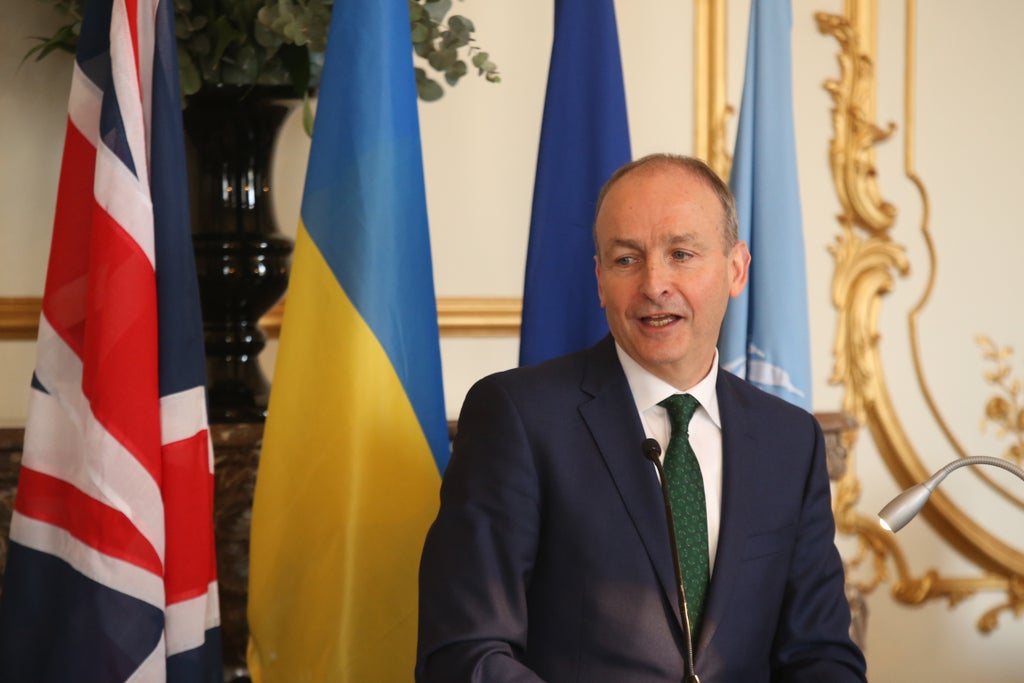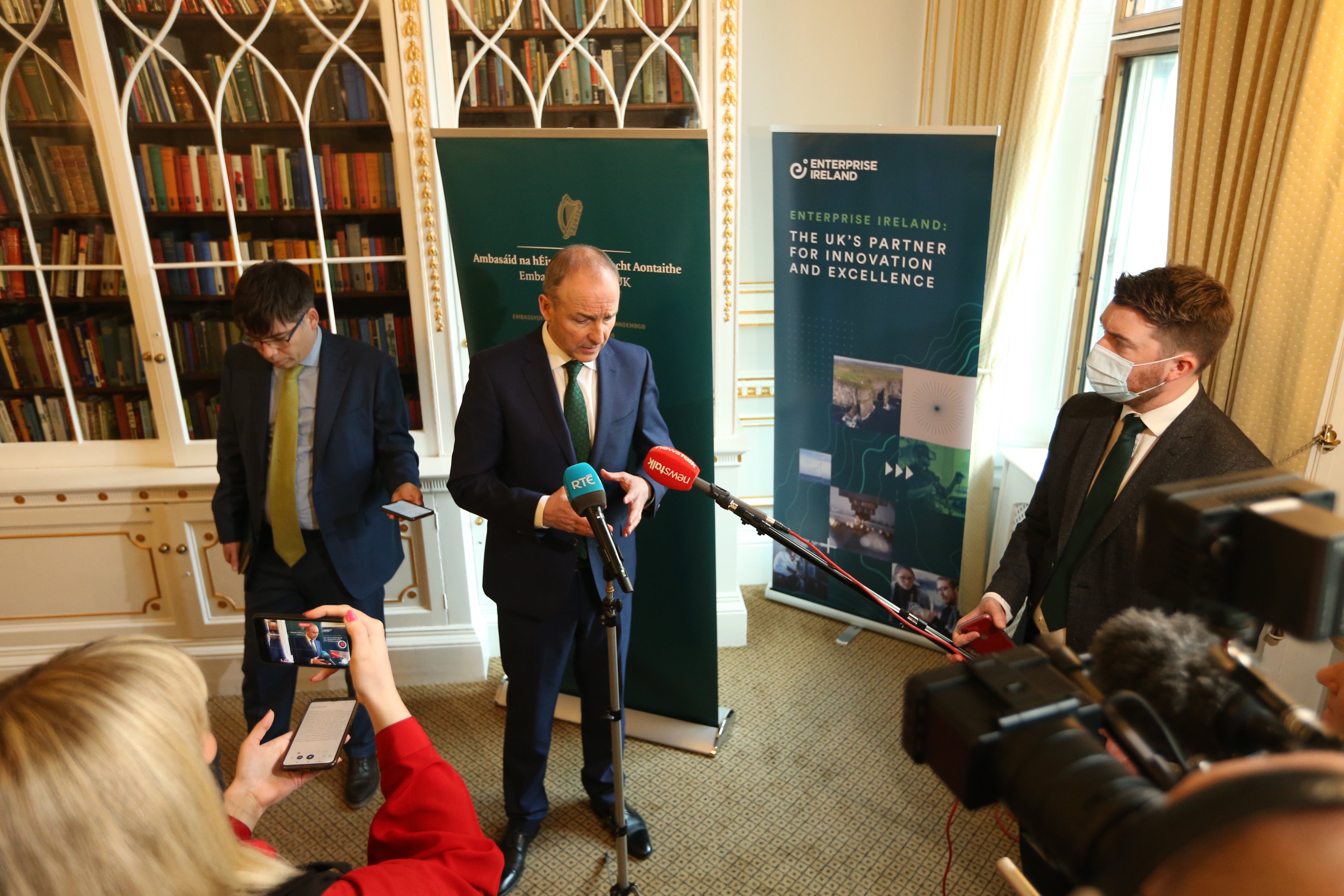
Irish premier Micheal Martin has said commodity prices are “going through the roof” as he warned people to expect an economic impact from Russia’s war in Ukraine.
The Taoiseach said the conflict will affect how much products cost and said a possible shortage of grain will have “very serious repercussions”.
Ireland is heavily reliant on imported grain, with around 60% of the 5.5 million tonnes used in the country every year sourced from overseas.

It is used both in products for human consumption and for animal feed.
Ukraine and Russia are both key international exporters of grain.
Russia also supplies more than 20% of fertiliser used in Ireland.
Mr Martin, who was speaking to reporters during a visit to London, said the precise impact of the war is yet to be determined.
Asked how concerned he is about the shortage of certain products, he said: “I think Europe is capable of feeding itself.
“I think there will be a very significant issue around grain, and it looks very likely Ukraine will not be planting this season.
“That has very serious repercussions across the continent, which will impact on Ireland, and that’s why there’s been discussions with Irish farming organisations.
“We have to be honest with people too, the war will have an impact.
I want to say to people though, the war will impact on us, particularly in terms of prices of many products, and that's probably the earliest manifestation of the war through food and everything else
“The precise nature of that impact is yet to be determined, but commodity prices are going through the roof basically.”
Mr Martin said this will feed into the economy, with the three main areas being fuel prices, food and general commodities.
The Taoiseach said there will be an impact on food but said he was not clear yet about any specific issues around shortages.
Pressed on potential shortages of particular products and lack of choice, Mr Martin said: “I don’t want to scaremonger at this stage.
“I’m just not in a position to predict this. But I want to say to people though, the war will impact on us, particularly in terms of prices of many products, and that’s probably the earliest manifestation of the war through food and everything else,” he said.
Asked if the country is in a “war economy”, he replied: “Not quite yet but we’re heading into that direction.”







